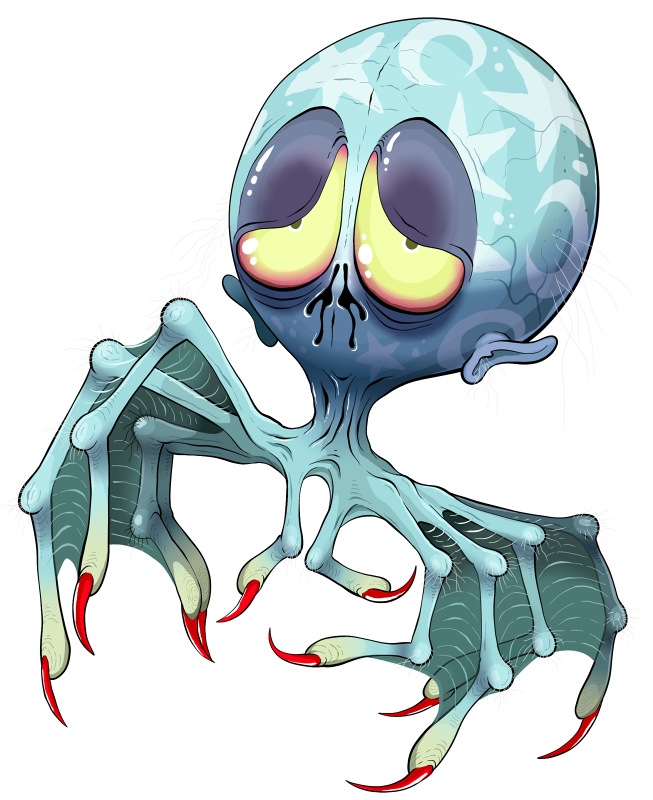Dreerie (5e Creature)
Dreerie[edit]
|
Small monstrosity, unaligned Armor Class 13 (natural armor)
Proficiency Bonus +2 Innate Spellcasting. The dreerie's spellcasting ability is Charisma (spell save DC 12). The dreerie can innately cast the spell dream at will, requiring no material components. ACTIONSClaw. Melee Weapon Attack: +3 to hit, reach 5 ft., one target. Hit: 6 (2d4 + 1) piercing damage. Sleep Sand. One creature within 15 feet of the dreerie must succeed on a DC 14 Constitution saving throw or fall unconscious until the sleeper takes damage, someone uses an action to shake or slap the sleeper awake, or the dreerie targets another creature with this action. After awakening, the creature is immune to the dreerie's Sleep Sand for 24 hours.
|
This gas-filled drifter feeds on little more than insects, airborne particles, light and the occasional bird or bat, and would be harmless if not for its natural drive to wield its psychoweaponry. Its huge, bulbous head houses surprisingly little functioning brain, most of its cerebral tissues modified into a cognotransmission system and a network of sacs in which its specialized microscopic parasites are manufactured from its own cells. Unleashed as a sparkling, colorful cloud of powder, these invade the nervous systems of compatible subjects, induce an instantaneous sleep state and establish two-way communication with their parent dreerie, allowing the monster full access to the host's thoughts and memories. Victims experience this attack as a strange and vivid dream varying in subject matter, but always bleak and somber in tone, with the dreerie itself presiding sluggishly over the gloomy scenery and pointless events. Losing themselves to the drab and pessimistic atmosphere, few creatures muster the emotional willpower required to recognize the danger and fight back against the monster. |
Back to Main Page → 5e Homebrew → Creatures



